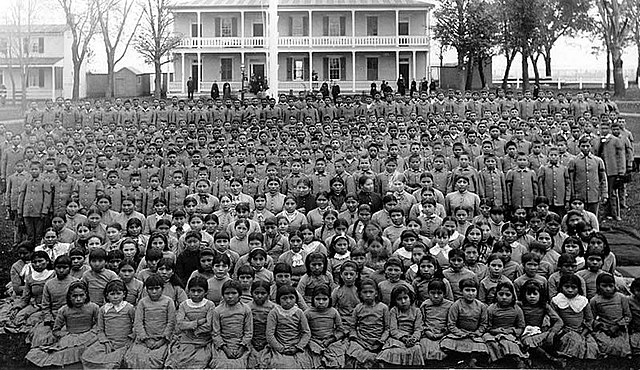Linguistic imperialism or language imperialism is occasionally defined as "the transfer of a dominant language to other people". This language "transfer" comes about because of imperialism. The transfer is considered to be a sign of power; traditionally military power but also, in the modern world, economic power. Aspects of the dominant culture are usually transferred along with the language. In spatial terms, indigenous languages are employed in the function of official (state) languages in Eurasia, while only non-indigenous imperial (European) languages in the "Rest of the World". In the modern world, linguistic imperialism may also be considered in the context of international development, affecting the standard by which organizations like the International Monetary Fund and the World Bank evaluate the trustworthiness and value of structural adjustment loans by virtue of views that are commonly foregrounded in English-language discourse and not neutral.

A photo of students at the Carlisle Indian Industrial School
Portrait of Lord Macaulay
Warrant for the urgent removal of Basque language inscriptions from tombstones in Gernika and its substitution for Spanish (1949), according to ordinance
Cultural imperialism comprises the cultural dimensions of imperialism. The word "imperialism" describes practices in which a country engages culture to create and maintain unequal social and economic relationships among social groups. Cultural imperialism often uses wealth, media power and violence to implement the system of cultural hegemony that legitimizes imperialism.
A jaguar hunter and his son, natives of the Chaco Boreal. The father continues to wear the traditional clothing of his region while the son has already adopted Western clothing.
Indigenous children who have been taken from their parents and placed in a Western-style residential school, which aimed to eliminate Indigenous language and culture and replace it with English language and Christian beliefs





